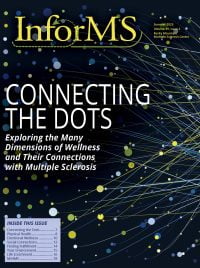A valuable and multi-faceted arena of health and wellbeing is life enrichment. Enrichment encompasses a wide range of elements that add to the quality of our lives and our health including leisure, recreation activities, and creativity.
Leisure and recreation activities happen during free time – not during work or when you’re taking care of routine household tasks or other obligations. And it includes activities that you enjoy such as playing games or sports, reading a book, outdoor activities, crafting, gardening, puzzles, getting together with friends, or even watching a movie.
Research shows how important leisure and recreation are to overall health. According to American Therapeutic Recreation Association (ATRA), recreation therapists “embrace a definition of ‘health’ which includes not only the absence of ‘illness,’ but extends to enhancement of physical, cognitive, emotional, social and leisure development so individuals may participate fully and independently in chosen life pursuits.”
ATRA sums up their field’s philosophy plainly and simply: “People with active, satisfying lifestyles will be happier and healthier.”
Recognizing how important leisure is to general health, therapeutic recreation is concerned with making sure leisure and recreation is accessible to everyone, regardless of their ability. This is particularly important for those living with MS, when anything from routine symptoms to advanced effects of the disease can make even the idea of recreation a seemingly daunting proposition.
According to ATRA, research into therapeutic recreation programs has significant positive impacts on health outcomes:
Physical health: Since many recreation activities are physical in nature, there’s a component of exercise built in. Exercise and physical activity is a well-known component of a healthy lifestyle, and therapeutic recreation can help tailor physical activities that not only suit a person’s abilities, but also their interests.
Psychosocial health: Defined as mental, emotional, social and spiritual wellbeing, a boost in psychosocial status can result from leisure and recreation’s tendency to relieve tension and stress. Making time for an activity you enjoy is not only a break from work and other responsibilities, but also a break from thinking or worrying about them.
Research led by the University of North Carolina’s Barbara Fredrickson demonstrated that positive emotions can help manage and even reverse the negative impacts that stress can have on our health. By incorporating engaged leisure activities into our lives, our brains can focus on challenges, learning and fun instead of ruminating on worries. It gives our brains a chance to reset and rest.
Cognitive health: Active brains are healthy brains, and keeping your mind active is a key part of maximizing lifelong brain health – the cornerstone of the Rocky Mountain MS Center’s treatment philosophy. Engaging in activities you enjoy can boost emotional and cognitive health by keeping the brain sharp, beyond the daily routine of work, your task list and chores.
A 2023 retrospective study led by Colleen C. Frank at the University of Texas at Dallas examined the impact of enrichment activities throughout a participant’s life. With a sample of 2,931 people taking part in the Health and Retirement Study, the researchers compared self-report data from early life and midlife to later life self-report data to determine cognitive performance after age 65. The study findings showed that individuals who maintained high levels of enrichment activity throughout their lives had higher levels of cognitive performance in their later years compared to people who had low levels of participation in enrichment activities.
Creativity
Research shows us that creativity has many physical and mental benefits for our health and wellbeing. Engaging in creative activities has been shown to combat depression, increase positive feelings, and to reduce stress and anxiety. Doing something creative has a similar effect on our brains as meditation.
The process of getting immersed in an activity that kindles your imagination and focus – such as writing, listening to music, baking, reading, crocheting, or painting just to name a few – helps to release tension, boost your mood, and even lowers your heart rate. According to a study originally published in the American Journal of Public Health, the simple act of being in the presence of creativity can also have significant positive impacts on your state of mind.
Engaging in creative activities also contributes to maximizing lifelong brain health. Research shows us that if you have an active life infused with creative activities, you have a larger neurological reserve, helping to build a more resilient brain.
Indeed, studies indicate that self-expression has many beneficial effects on cognition, emotional health and underscore the idea that taking part in creative experiences has a protective effect on the brain. The principal investigator of a 2015 Mayo Clinic study explains: “Our study supports the idea that engaging the mind may protect neurons, or the building blocks of the brain, from dying, stimulate growth of new neurons, or may help recruit new neurons to maintain cognitive activities in old age.”
A 2016 study published in The Journal of Positive Psychology concluded that “spending time on creative goals during a day is associated with higher activated positive affect on that day.” Positive affect simply means the level of positive moods – such as joy, happiness, and optimism – that people experience. Higher levels of positive affect make it easier for an individual to focus on possibilities in their life. Focusing on life’s possibilities contributes to the ongoing practice of cultivating resiliency, especially when navigating life with a chronic disease like MS. n







